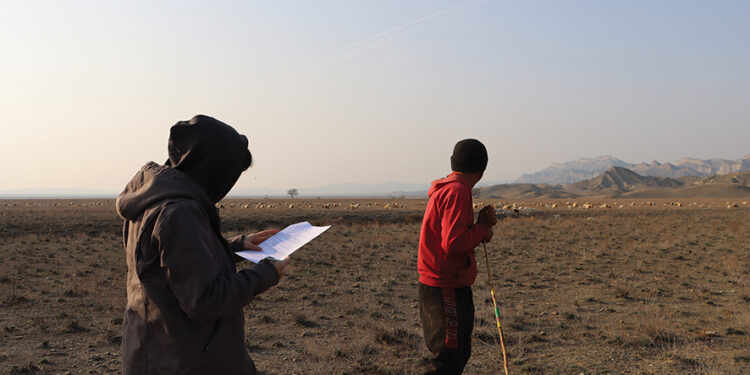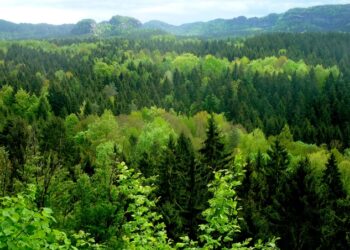Natural resources are finite and depleting rapidly due to overuse and exploitation. By conserving these resources, we ensure that they remain available for future generations, thereby promoting sustainability and the health of our planet.
Considering the importance of preserving and protecting natural resources, the role and contribution of organizations that work selflessly in this direction becomes even more valuable.
One such organization operating locally, known for its dedicated work promoting the conservation of wildlife in Georgia, and encouraging the sustainable use of natural resources, is SABUKO, the Society for Nature Conservation and Birdlife Partner in Georgia. SABUKO aims to raise awareness about the value of nature and the importance of protecting it.
To prevent the conflict between humans and nature, SABUKO has chosen a way of cooperation and works with local communities, finding the best results come through direct contact and joint efforts.
Following the successfully implemented first phase of the project ‘Restoring Gallery Forest and Grasslands in the Iori River Valley,’ now, SABUKO, along with its partners, is implementing the second phase, which is building on the progress made by the completed ELSP-funded Iori River Valley project, scaling up grassland restoration and continuing work with the pastoralist community.

Human-wildlife conflict (HWC) is a critical issue worldwide, especially in rural areas where human populations and wildlife vie for resources. In regions like the Iori Plateau in southeastern Georgia, where the environment is fragile and rural communities rely heavily on livestock farming, the conflict between humans and wildlife often manifests through livestock predation. The study conducted by SABUKO within Kakheti Steppes project explores the extent and nature of HWC in the Iori Plateau, examining the challenges faced by local farmers and proposing solutions to mitigate these conflicts.
As human populations expand and encroach upon wildlife habitats, it is essential to understand the dynamics of HWC, its root causes, and its impact on both human livelihoods and biodiversity conservation. This article presents findings from a mixed-methods study conducted by SABUKO, the Society for Nature Conservation, focusing on the local community’s attitudes toward wildlife, the types of conflicts experienced, and the effectiveness of current mitigation strategies.

The Iori Plateau: A Landscape of Diversity
The Iori Plateau, situated in Georgia’s southeastern region, encompasses a mix of protected areas, including the Vashlovani Protected Areas, the Nugzar Zazanashvili Samukhi Multipurpose Use Protected Area, and the Chachuna Managed Reserve. This area, characterized by dry steppes and semi-deserts, serves as a winter pasture for many farmers who rely on livestock for their livelihood. The terrain’s environmental challenges—scarcity of water and extreme seasonal temperatures—add complexity to farming practices, making the local farmers highly dependent on their livestock.
With a rich biodiversity, human-wildlife conflict in the region is primarily related to livestock depredation. Wolves, foxes, jackals, and other predators have been seen as a threat to the farmers’ sheep and cattle. Farmers’ livelihoods are directly impacted by these predators, especially during the lambing season, when attacks are most frequent.
A key aspect of the study is understanding farmers’ perceptions of wildlife and the impact of these conflicts on their livelihoods. The survey included 65 farmers from diverse ethnic backgrounds, including ethnic Azerbaijani Georgians and ethnic Georgians, including Tush people, who primarily engage in transhumant pastoralism. The study found that most farmers have a deep emotional connection to the land and wildlife, yet this sentiment is often overshadowed by the economic strain caused by wildlife-related damages.
Despite recognizing the beauty and value of wildlife, many farmers expressed frustration over the lack of effective support from the government in managing wildlife conflicts. Most farmers rely on traditional methods, such as using guard dogs, fences, and firecrackers, to protect their livestock.
The study also sheds light on the legal and policy frameworks governing HWC management in Georgia. According to the Law on the Protection of Wildlife, the regulation of wildlife populations is primarily managed by municipalities, with the Ministry of Environment and Agriculture issuing quotas for species removal. However, the quota system has faced criticism for lacking scientific data and often being unresponsive to the actual dynamics of wildlife populations.
Farmers expressed their frustration over the current policies, noting that compensation for livestock losses due to wildlife is not practiced. This has led to a lack of trust in government institutions, with many farmers opting to address the problem independently, even resorting to illegal hunting in some cases.
Effective mitigation of human-wildlife conflict requires collaboration between farmers, local communities, government bodies, and conservation organizations. The study highlighted several strategies that could be implemented to reduce conflict, including strengthening shepherds’ knowledge on livestock protection, improving livestock management practices, and promoting non-lethal deterrents.
Farmers suggested that regulated hunting should be reintroduced as a measure to control the wolf population. They also advocated for financial compensation or insurance schemes to cover the losses incurred from wildlife attacks. Moreover, there was a strong call for greater community involvement in decision-making processes related to wildlife management.
The findings from this study underscore the complexity of human-wildlife conflict in the Iori Plateau and the need for a more integrated approach to managing these challenges. While technical solutions such as predator deterrents and compensation schemes are essential, addressing the social and political aspects of the conflict is equally important. Engaging farmers in decision-making, improving communication with local authorities, and developing tailored conservation education programs are critical steps toward fostering coexistence between humans and wildlife.
As human populations and wildlife continue to interact in shared spaces, it is crucial to find sustainable solutions that balance the needs of rural communities with the conservation of biodiversity. By incorporating local knowledge, addressing resource scarcity, and fostering collaboration among stakeholders, Georgia can develop a more effective and equitable approach to managing human-wildlife conflict.
To find out more about the results of the studies conducted by SABUKO, GEORGIA TODAY spoke to Tamar Uguzashvili, Conservation Manager.
“To assess human-wildlife conflict, we conducted a survey in two regions, Racha and Kakheti. The data from Racha is still being processed and the results will be available soon.

We already know the results from Kakheti. We used semi-structured and in-depth interviews in the survey.
Since human-wildlife conflict is not only of ecological but also socio-economic importance, we divided the semi-structured questionnaires into 8 sections, which included the following issues: demographic characteristics, farm and livestock, knowledge and attitudes towards wild animals, type and frequency of human-wildlife conflict, local knowledge and attitudes towards reintroduction, introduction and recolonization of different species, mitigation, prevention and communication with government representatives, and participation in political decision-making processes and ways to solve problems in the long term.
Our study area in Kakheti is the only winter pasture in Georgia. Farmers bring sheep and sometimes cows from different parts of the country from November to April. Shepherds say that the most problematic wild animal for them is the wolf, and they suffer the most damage from it. 96.4% of the total damage is caused by wolves.
The results showed that predator attacks were most frequent in winter, followed by spring. One possible explanation for the higher number of attacks in winter could be the length of time farmers spend on the territory during this season. Farmers usually spend the entire winter and two months of spring on the territory, and spend less time in autumn – only half of the season or less. We also calculated the losses for each farmer, which ranged from 0 to 7.96%. We obtained these percentages by dividing the number of livestock lost to predation by the total number of livestock owned by each farm. In interviews, shepherds noted that with a good dog and an attentive shepherd, the damage is minimal.
Such studies are important because properly planned measures to reduce conflict are a crucial component of harmonious coexistence between humans and wild animals. Based on the results of these studies, we, the SABUKO team, will be able to plan preventive measures, reduce farmers’ negative attitudes towards wild animals and do our best to mitigate the results of Human-wildlife conflict and ensure their harmonious co-existence.”
By Ana Dumbadze














